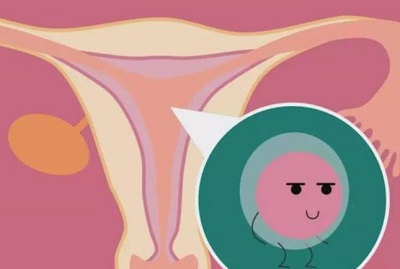How Long Can Adenomyosis Disappear after Menopause?
Now there are an increasing number of patients with gynecological diseases. The key is that women do not pay much attention to their living habits. Coupled with increasing pressure, women have no more time to take care of their bodies.

For example, adenomyosis is a gynecological disease with a relatively high incidence. Women who have given birth to children are more likely to suffer from this disease, even though some are older and near menopause. At this time, many women think that adenomyosis might cause no more symptoms after menopause. So, will adenomyosis disappear after menopause?
To answer this question, women should understand the pathogenesis of adenomyosis. Adenomyosis occurs mainly as an endogenous endometriosis, in which active endometrial cells are planted in the myometrium. With menstrual bleeding, the clinical manifestation is dysmenorrhea, the uterus is diffusely enlarged, and the menstrual flow can be heavy. In other words, adenomyosis is closely related to the phenomenon of female menstruation.
After menopause, the secretion of various hormones in the body is reduced. Adenomyosis is an estrogen-dependent disease. After menopause, women's ovaries no longer secrete estrogen, and the estrogen in the body is at a low level for a long time. Besides, the endometrium will atrophy, and the uterus will atrophy too. This will cause myometrial gland lesions to shrink, symptoms to alleviate, and even some mild adenomyosis may gradually heal. This gives some women the illusion that the disease will go away on its own after menopause.
In fact, though the symptoms of the disease disappear, it does not mean that adenomyosis has gone away. Generally speaking, the lesions that have formed in the myometrium of the patient are unlikely to disappear with menopause of the patient. The pathological basis is still there, so there is still the possibility of recurrence in the future. At the same time, because the ovaries are not the only organ that secretes estrogen in the female body, some patients may even secrete hormones from other organs after menopause and continue stimulating the growth of lesions and producing pain.
So women with adenomyosis should not take it lightly after menopause. Although the disease may not affect the sufferer's daily life, it is essential to have a regular physical examination once or twice a year. Only through the re-examination of the physical examination can women know on time whether there are other lesions, so they can also treat abnormal conditions as soon as they notice them.
If it is in the early stage, the general monitoring of the tumor size can be ok. Without the support of hormones in the body, most legions will not continue to grow. If women go through menopause, they no longer have a menstrual cycle and no longer feel the stimulation of endometrial growth.
However, it is still recommended that female patients follow the doctor's advice and carry out the systematic and scientific treatment. Antibiotics can be used to remove adenomyosis-related lesions in the body. If the drug effect is not good, surgery is needed for treatment. In short, the patient's health is the starting point of all treatments. Women can choose the herbal medicine Fuyan Pill under the guidance of doctors, which can effectively kill bacteria, eliminate inflammation and relieve women's pain.
Women are also recommended to eat less cold and spicy foods daily. They should also pay attention to abdominal warmth. Do not overwork and stay up late. At the same time, women should strengthen their body resistance through exercise, which is conducive to recovery from disease and the maintenance of physical health.
You may also be interested in:
How Should Adenomyosis Patients Get Pregnant and Protect Fetus?
previous pageWhy do So Many People Regret Doing Surgery to Treat Adenomyosis?
next page
You may also be interested in
- Herbal Treatment for Adenomyosis with Large Uterine Enlargement and Heavy Bleeding
- Adenomyosis Dysmenorrhea: A Practical Guide to Topical Traditional Chinese Medicine Methods
- Effective Chinese Herbal Remedies for Adenomyosis Pain: End Your Period Discomfort
- Adenomyosis with Unbearable Cramps: When Painkillers Don't Work—Natural Relief with Fuyan Pill
- Managing Adenomyosis: Easing Pelvic Pain and Heavy Menstrual Bleeding with Natural Approaches
Testimonials
- Adenomyosis with Ureaplasma Urealyticum Cured by Fuyan Pill
- Tubal blockage with hydrosalpinx can be cured by TCM shortly
- Fuyan Pill Helps A woman with Adenomyosis Get Pregnant
- A Woman with Hydrosalpinx Is Cured with Fuyan pill
- Pelvic Inflammatory Disease Testimonials
- Irregular Vaginal Bleeding and Endometrial Thickening Cured by Fuyan Pill
- Pruritus Vulvae and Frequent Urination: Mycoplasma Infection Cured after 2 Courses



